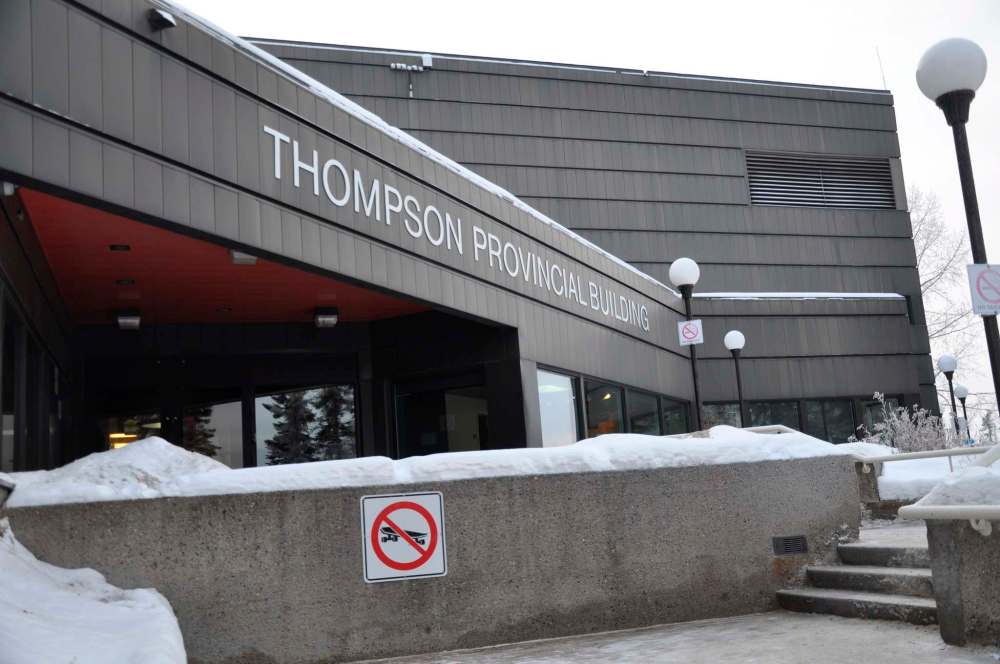Civil liberties group to challenge more bail systems across the country
Advertisement
Read this article for free:
or
Already have an account? Log in here »
To continue reading, please subscribe:
Monthly Digital Subscription
$19 $0 for the first 4 weeks*
- Enjoy unlimited reading on winnipegfreepress.com
- Read the E-Edition, our digital replica newspaper
- Access News Break, our award-winning app
- Play interactive puzzles
*No charge for 4 weeks then billed as $19 every four weeks (new subscribers and qualified returning subscribers only). Cancel anytime.
Read unlimited articles for free today:
or
Already have an account? Log in here »
Hey there, time traveller!
This article was published 14/11/2019 (1623 days ago), so information in it may no longer be current.
The Canadian Civil Liberties Association has declared a Manitoba superior court decision one of the most important legal rulings on “dysfunctional” bail systems within the past decade.
The association has pledged to launch legal challenges across the country similar to one that prompted Manitoba Court of Queen’s Bench Justice Chris Martin on Thursday to call for an independent review of the way the justice system works in northern Manitoba.
Association executive director Michael Bryant said the national organization has been working for months to bring court challenges to northern communities “in order to expose and have struck down the bail systems in the north.”

“This is one of the most important decisions that has been rendered in the last 10 years in Canada, because it details that the bail system is thoroughly broken by design. By its very design, it is unconstitutional,” Bryant said.
In his decision, Justice Martin ordered expenses and legal costs of $5,000 each be paid to two defence lawyers, Rohit Gupta and Boris Bytensky. They successfully argued the case of Lesley Balfour and Dwayne Young, and brought to light systemic abuses that have become the norm within the Thompson provincial court centre.
Balfour, a single mother of four from Norway House, spent 51 days in jail waiting for her bail hearing in 2017 before her criminal charges were stayed. Young, from Split Lake, waited 23 days for his bail hearing and was eventually found not guilty. Martin ruled their charter rights were violated because they didn’t have a bail hearing within a reasonable time. Under the Criminal Code, bail hearings must be held within three days unless the accused consents to wait longer.
Bryant said the association plans to argue the Crown should be ordered to pay costs when an accused is denied the right to a timely bail hearing.
“We will be urging this remedy on every bail court in the country, such that Crown attorneys are held to account in a meaningful way that will cause their superiors to think twice before they continue with a policy of mindless mass incarceration of innocent people, that’s what it is,” he said.
It’s common for courts across Canada to run out of time to hold bail hearings, Bryant said.
“That is happening in Brampton, Toronto, Edmonton, Calgary, Vancouver, Kenora, everywhere in this country… and that’s an unconstitutional system,” he said.
He acknowledged many lawyers working in busy court centres such as Thompson don’t have time to launch charter challenges, but he said that’s what needs to happen. He invited lawyers to contact his organization to get involved in what he says will be a national project.
“The practical solution in the short term is that we need to coordinate our efforts nationally, those who want to go that extra mile to make systemic change.”
Advocates applaud judge’s call for independent review
Meanwhile, advocates are applauding the Manitoba ruling and echoing calls for an independent review of the northern justice system, which disproportionately affects Indigenous people.
NDP justice critic Nahanni Fontaine said it’s incumbent on the provincial government to conduct a review that includes everyone involved in the justice system in a “robust and comprehensive way.” Balfour’s case is a stark example of why a review is necessary.
“Fifty-one days away from her children. That fundamentally impacts on her children… and that is a violation of her human rights. We can do and we must do better here in Manitoba for Indigenous people,” Fontaine said.
Although Manitoba’s Aboriginal Justice Inquiry explored many of the same issues nearly 30 years ago, Fontaine said a review could shed light on gaps that exist today.
Manitoba Keewatinowi Okimakanak Grand Chief Garrison Settee said he wants an independent review.
“We’ve been witnessing the system, how it is not easy working in the north and that we need to make some fundamental changes in how justice is looked at in the north,” he said.
“They should sit down with us, because I think we have a lot of answers, we have a lot of solutions, it’s just nobody’s ever asked us to do that. We have our own way of looking at justice as Indigenous people from our cultural standpoint.”
Grand Chief Arlen Dumas of the Assembly of Manitoba chiefs said he met earlier this year with justice officials to discuss reconciliation efforts. On Friday, he said this case of “wanton violations of people’s charter rights,” shows the need for more effective communication.
“We have to appreciate the justice system plays a role, the RCMP plays a role, probation plays a role, but they’re not all working in silos and they have to realize that they all have to communicate better,” he said. “We all have to ensure that we’re providing the proper oversight… to deal with these justice issues for our communities.”
katie.may@freepress.mb.ca
Twitter: @thatkatiemay

Katie May
Reporter
Katie May is a general-assignment reporter for the Free Press.
History
Updated on Saturday, November 16, 2019 10:50 AM CST: Formatting.






